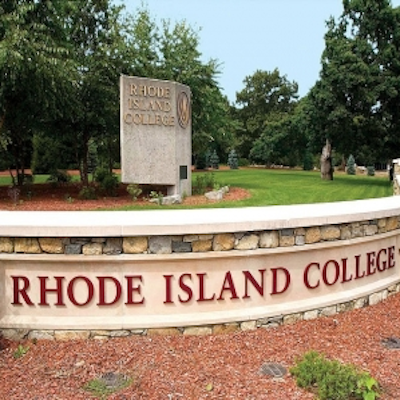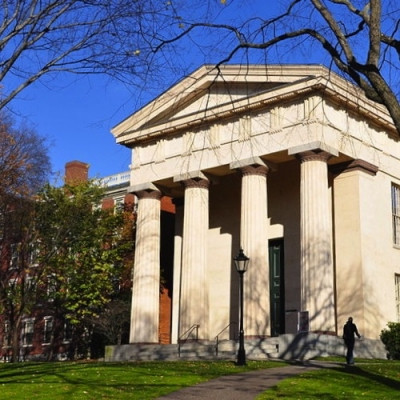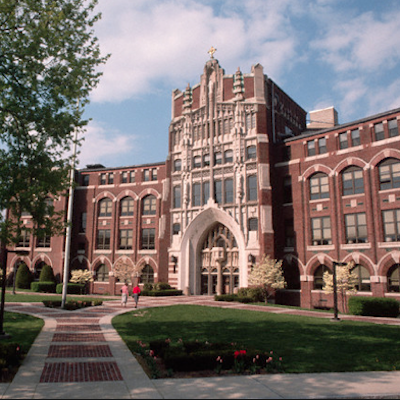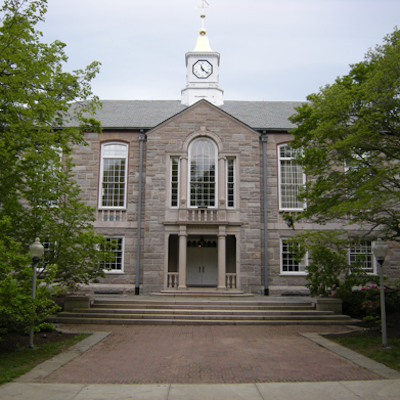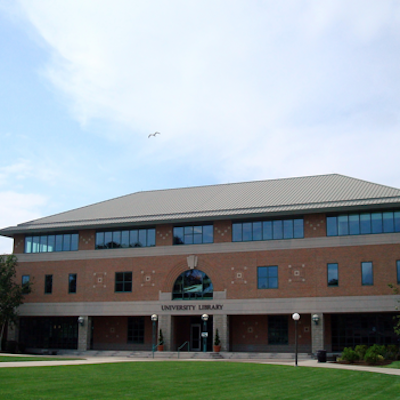RIC Faculty Group Opposes Use of Foundation Funds to Hire Innovation Officer
Thursday, January 28, 2016
A group of Rhode Island College faculty members who are members of the American Federation of Teachers (AFT) have expressed concern and opposition to the use of Rhode Island College Foundation funds to hire the State of Rhode Island's Chief Innovation Officer (CInO), Richard Culatta.
After a unanimous vote by the AFT, the group sent a letter to the three signatories fof the contract -- Nancy Carriuolo, President of Rhode Island College; William Hurry, President of the RIC Foundation, and Governor Gina Raimondo.
"We do not believe that the appointment of the RI Chief Innovation Officer through the RIC Foundation is in the best interests of the students or the faculty of Rhode Island College," the group said in their letter.
GET THE LATEST BREAKING NEWS HERE -- SIGN UP FOR GOLOCAL FREE DAILY EBLASTIt was reported last week that RIC's associate vice president for development and external relations, Edwin Pacheco, indicated that there was excitement, not concern about the creations of the innovation office.
"The basis for such a statement is unclear to us. The faculty was not consulted on this appointment, and it was presented to neither the Council of Rhode Island College nor the RIC-AFT," the letter says.
Expressing Concerns
The group goes on to express some of the concerns that the faculty at RIC has.
"Our first concern is the inconsistency of the appointment with the stated mission of the RIC Foundation. While the presence of the CInO on campus might benefit RIC in some ways, the funds expended for this position can in no way be said to be solely for Rhode Island College.
Second, the appointment diverts resources that could have been used to advance the College directly. The CInO’s reported $210,000 salary plus benefits could have been used to hire at least four full-time, tenure-track faculty members.
Third, the appointment has unnecessarily placed Rhode Island College in the center of unwanted political controversy.
Finally, the use of Foundation funds for purposes other than supporting the College has the potential to harm the College by reducing future contributions to the Foundation," the letter states.
Alternate Plan
The group than gives an alternate option for what the money could have been used for.
"This money could have been used to provide scholarships for low-income students," the letter says.
The letter goes on to say that the money used to pay the CInO would have provided full scholarships for at least two-dozen Rhode Island students.
The American Federation of Teachers at Rhode Island College
The American Federation of Teachers at Rhode Island College is formally made up of faculty representatives from every academic department on campus. The meetings are open to all Rhode Island College faculty members.
Related Slideshow: RI 4 Year Colleges & Universities with the Highest Student Debt
Seven in 10 college seniors (71%) who graduated last year had student loan debt, with an average of $29,400 per borrower, according to a new report released by the Institute for College Access and Success. According to the Institute’s Project on Student Debt, Rhode Island has the fifth highest student debt in the country, but what about the state's individual institutions? Check out the slides below to see the average debt graduates accrued at Rhode Island colleges and universities.
Note: All data is based on four-year or above institutions for students graduating in the 2011-2012 academic year. Johnson and Wales University and the Rhode Island School of Design are not included in the data below, because they did not report the average debt of their graduates.
Related Articles
- NEW: RI Gas Prices Inching to $2 a Gallon
- Patricia Morgan: 15 Who Made a Difference in 2015
- St. George’s, One of the Richest Prep Schools, Faces Tens of Millions in Lawsuits for Sexual Abuse
- Guest MINDSETTER™ Hewett: Dear voters in State Senate District 11
- NEW: Joe’s American Bar and Grill Closing at Providence Place Mall
- President Dr. Carriuolo Who Led RIC’s Resurgence is Resigning
- The Threat of Terror in Rhode Island—Americans and ISIS
- Guest MINDSETTER™ Santos: America’s Veterans, Her Forsaken Sons and Daughters
- The Cellar: South American Under $15 Values
- TF Green Airport Announces Addition of 2 American Airlines Flights to Chicago
- GoLocal Interview: Americana Songwriter James McMurtry
- Riley: Puerto Rico Hedge Fund “Bailout” to Follow Rhode Island Law
- Hot Shooting Leads URI Past Richmond 77-65
- Don Roach: Why are Falling Oil Prices Killing my 401(k)?!
- RI Gas Prices Drop 5 Cents From Last Week
- Matt Fecteau: Oil Prices Alone Are Not Killing Your 401(k)
- NEW: RI Gas Prices Drop 3 Cents From Last Week
- NEW: Sen. Jabour Calls for AG Kilmartin to Investigate URI, RIC Foundations
- Cranston Mayoral Candidate Sepe Responds to Senior Enrichment Center Incident
- Newport Historical Society Announces Newport Eats Food Initiative
- Here’s Where Americans Live The Longest
- Dr. Patrick Conley: I Hated to Like Cianci
- Moore: Unlike RI, Puerto Rico Takes on Ratings Agencies
- RI Gas Prices Drop Below $2 Per Gallon for the First Time in 7 Years


